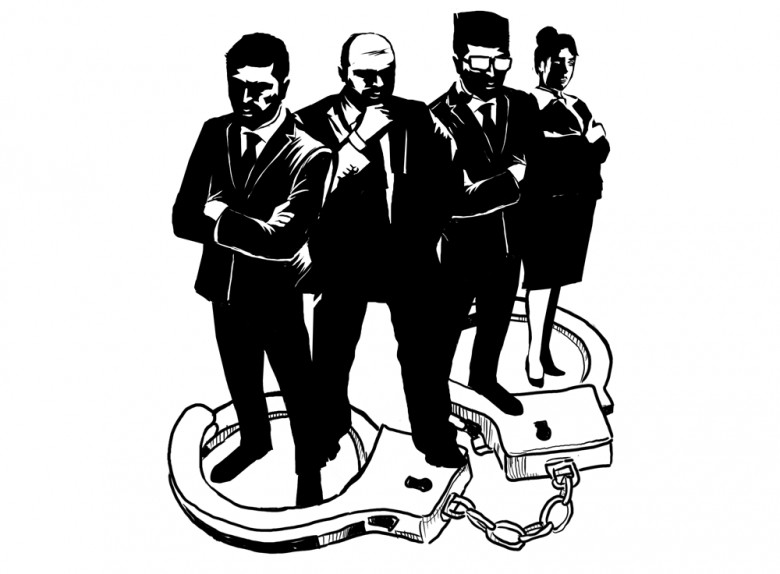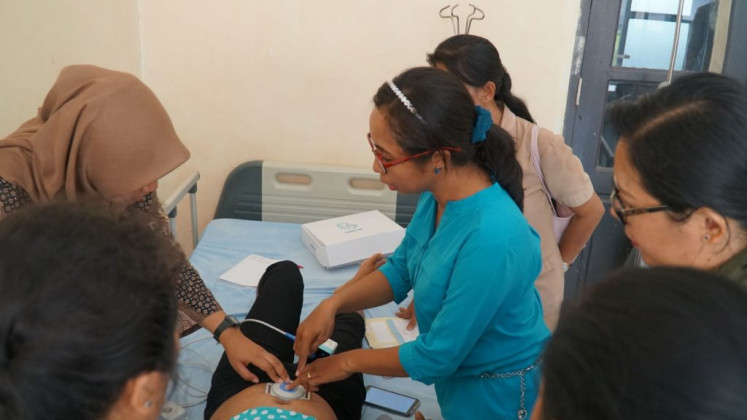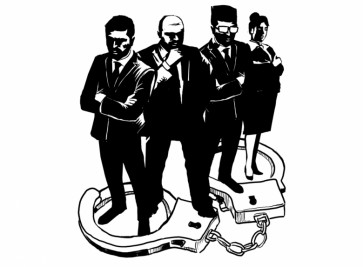Popular Reads
Top Results
Can't find what you're looking for?
View all search resultsPopular Reads
Top Results
Can't find what you're looking for?
View all search resultsCorporate compliance key to corruption prevention
The management of SOEs face two crucial issues, pursuing profit and avoiding losses, which may be considered a criminal act of corruption, regardless of whether losses in a particular field of business are unpredictable. #opinion
Change text size
Gift Premium Articles
to Anyone
L
aw No. 17/2003 on state finances, as affirmed by Constitutional Court Decision No. 62/PUU-XI/2013, stipulates that state-owned enterprises (SOE) shall be considered state assets. As a consequence, the stipulation, “unlawfully or intentionally enriching oneself or another person or corporation causing state losses” in articles 2 and 3 of Law No. 31/1999, as amended by the 2001 Corruption Law, also cover losses suffered by SOEs.
The scope of state losses covered under the Corruption Law has had a significant impact on the organizing of SOEs. The management of SOEs, particularly the board of directors, face two crucial issues, pursuing profit and avoiding losses, which may be considered a criminal act of corruption, regardless of whether losses in a particular field of business are unpredictable. As a result, Indonesian courts have handed down several verdicts involving the directors or managers of SOEs.
First, Hotasi Nababan, the former president director of PT Merpati Nusantara Airlines was declared guilty by the Supreme Court for his role in a corruption case concerning an aircraft lease deal that caused US$1 million in states losses. This verdict annulled a previous verdict by the Jakarta Corruption Court.
The Supreme Court found Hotasi guilty on the grounds that, (i) the lease made by Hotasi and the Thirdstone Aircraft Leasing Group (TALG) had commenced but was not included in the company’s budget plan (RKAP), (ii) Hotasi did not report or resubmit the RKAP containing the leasing plan to the general meeting of shareholders (GMS) for approval, as regulated under Article 22 of Law No 19/2003 regarding SOEs (SOE Law) and its implementing regulation, and (iii) the security deposit payment conducted prior to the execution of the lease agreement was made through a cash mechanism rather than a letter of credit (LC) or escrow account, which violated Finance Ministerial Decree No. 1169/KMK.01/1991 and the principles of professionalism, efficiency, transparency, independency, accountability, responsibility and fairness, as outlined in Article 5 paragraph (3) of the SOE Law.
Hotasi argued that the losses caused by the security deposit payment to TALG were purely a business risk, and therefore, argued the decision could not be deemed an unlawful act as it had been taken transparently, prudentially, on good faith, with no conflict of interest and in accordance with good corporate governance principles.
Second, Fachrudin Yasin and Roy Ahmad Ilham, former corporate relationship group head and former credit approval group head of PT Bank Mandiri were declared guilty of corruption by the Supreme Court for causing state losses of $5.8 million by providing refinancing to PT Arthabima Textindo and PT Arthamustika Textindo without taking the necessary prudential action, as initially the loan status of the debtors was classed as a non-performing loan, meaning the refinancing should not have be approved.
Fachrudin and Roy submitted new evidence in the second review that purported to show that necessary prudential action had been taken in 2002, by inter alia (i) explaining that the debtors should be considered qualified debtors, and that (ii) Bank Mandiri had included the debtors on its list of those qualified for refinancing. In the end, the Supreme Court in the second review declared Yasin and Ilham not guilty. The state losses incurred through Bank Mandiri were not considered corruption.


















